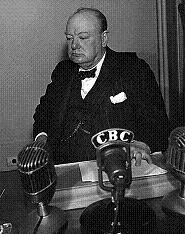
The Inside of the Cup
Versandkostenfrei!
Versandfertig in 1-2 Wochen
26,99 €
inkl. MwSt.

PAYBACK Punkte
13 °P sammeln!
Winston Churchill's novel The Inside of the Cup was published in 1913. It sparked a national debate about Christianity's role in modern life. The incidents in the book, with few exceptions, take place in one of the largest cities in the United States of America, and of that portion known as the Middle West, a city once conservative and provincial, and rather proud of these qualities; but now outgrown them, and linked by lightning limited trains to other teeming centres of the modern world: a city recently overtaken by the plague which has swept our country from the Atlantic to the Pacific.















